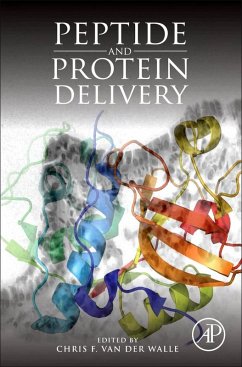
Enzyme Kinetics: Catalysis and Control (eBook, ePUB)
A Reference of Theory and Best-Practice Methods

PAYBACK Punkte
62 °P sammeln!
Far more than a comprehensive treatise on initial-rate and fast-reaction kinetics, this one-of-a-kind desk reference places enzyme science in the fuller context of the organic, inorganic, and physical chemical processes occurring within enzyme active sites. Drawing on 2600 references, Enzyme Kinetics: Catalysis & Control develops all the kinetic tools needed to define enzyme catalysis, spanning the entire spectrum (from the basics of chemical kinetics and practical advice on rate measurement, to the very latest work on single-molecule kinetics and mechanoenzyme force generation), while also fo...
Far more than a comprehensive treatise on initial-rate and fast-reaction kinetics, this one-of-a-kind desk reference places enzyme science in the fuller context of the organic, inorganic, and physical chemical processes occurring within enzyme active sites. Drawing on 2600 references, Enzyme Kinetics: Catalysis & Control develops all the kinetic tools needed to define enzyme catalysis, spanning the entire spectrum (from the basics of chemical kinetics and practical advice on rate measurement, to the very latest work on single-molecule kinetics and mechanoenzyme force generation), while also focusing on the persuasive power of kinetic isotope effects, the design of high-potency drugs, and the behavior of regulatory enzymes. - Historical analysis of kinetic principles including advanced enzyme science - Provides both theoretical and practical measurements tools - Coverage of single molecular kinetics - Examination of force generation mechanisms - Discussion of organic and inorganic enzyme reactions
Dieser Download kann aus rechtlichen Gründen nur mit Rechnungsadresse in A, B, BG, CY, CZ, D, DK, EW, E, FIN, F, GR, HR, H, IRL, I, LT, L, LR, M, NL, PL, P, R, S, SLO, SK ausgeliefert werden.













